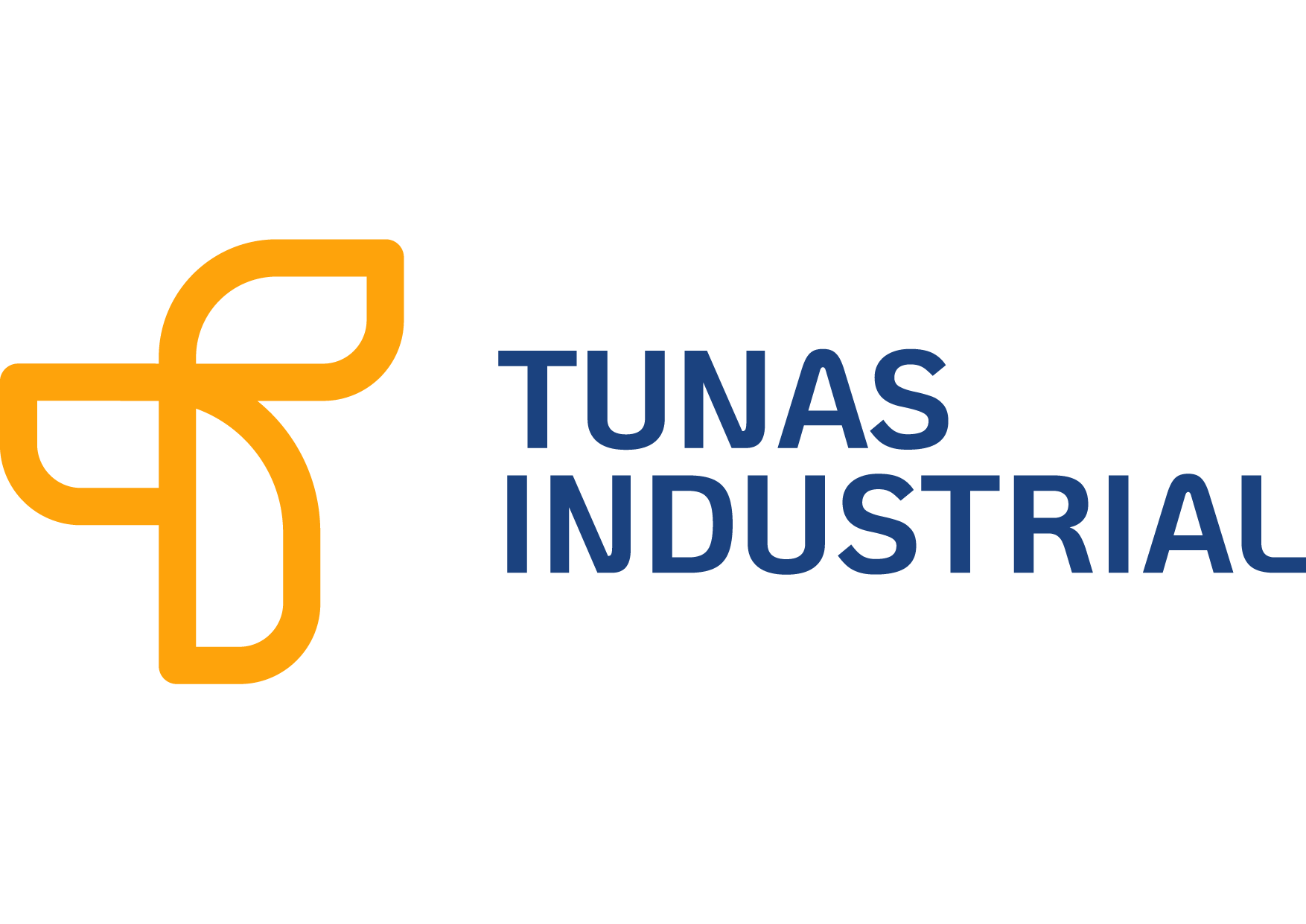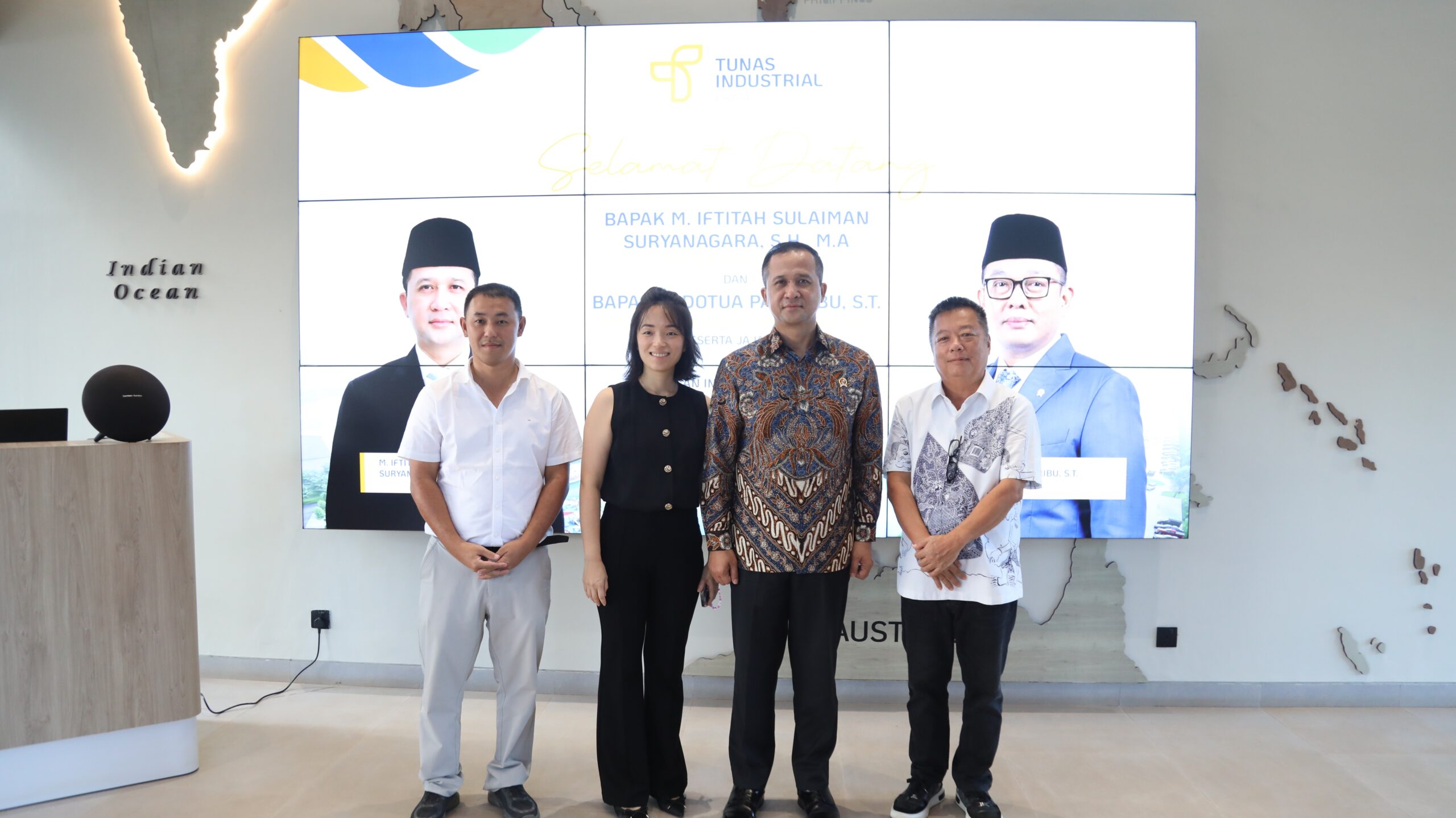
04 Jun
Minister of Transmigration and BP Batam Visit to Tunas Prima Industrial Estate
Batam, June 3, 2025 — Indonesian Minister of Transmigration, Muhammad Iftitah Sulaiman Suryanagara, and Vice Minister of Investment and Downstream/BKPBM, visited the Tunas Prima Industrial Estate in Batam. Accompanied by Batam Vice Mayor Li Claudia Chandra and BP Batam officials, Minister Iftitah and his delegation received presentations on the industrial sector’s prospects from investors as well as the latest project updates from Tunas Industrial management.
The visit also included an introduction to the Green Industry concept of Tunas Prima Industrial Estate, which has earned the Greenmark certification. The delegation toured several warehouse tenant sites, infrastructure, and facilities. Minister Iftitah expressed his appreciation for the strong synergy between Tunas Industrial and the Batam government in fostering regional economic growth, and highlighted Batam’s role as one of Indonesia’s leading investment hubs.
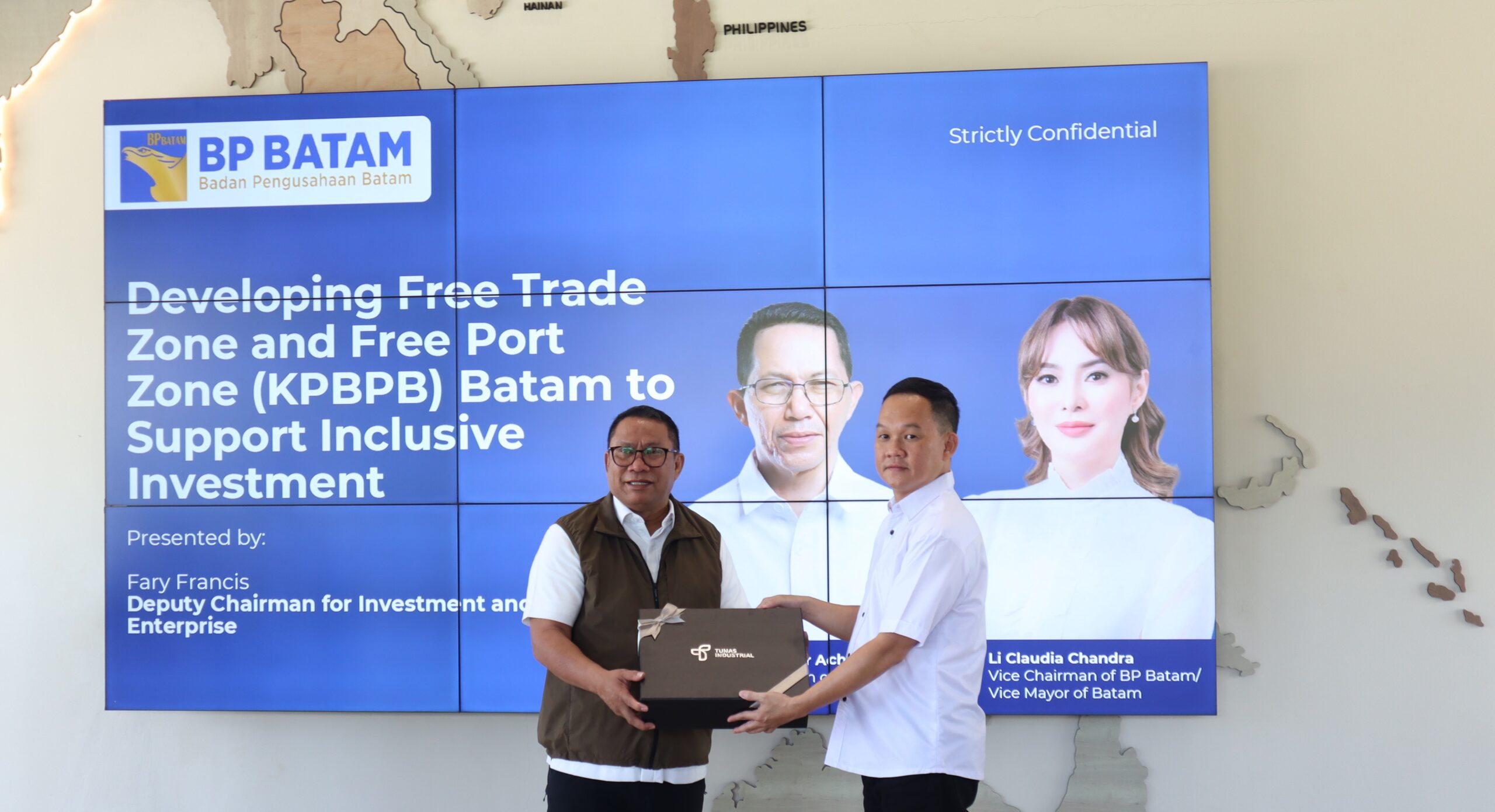
04 Jun
BP Batam Takes Proactive Steps to Boost Investment in Batam with Tunas Prima
Batam, 2 June 2025 — BP Batam, through its Deputy for Investment and Business Development, Fary Djemy Francis, is intensifying synergy and collaboration with Batam’s industrial estates to foster seamless investment processes and inclusive economic growth.
During a working visit to Tunas Prima Industrial Estate, Fary emphasized BP Batam’s new proactive approach in addressing investment-related challenges. “President Prabowo’s directive is clear: BP Batam must be present on the ground, engage directly with businesses, and resolve issues on-site,” he stated.
This hands-on approach has already proven effective in accelerating services for investors. During the visit, BP Batam listened to concerns from several tenants in Tunas Prima—including pending business permits—and successfully resolved the issues on-site in under two hours through swift coordination.
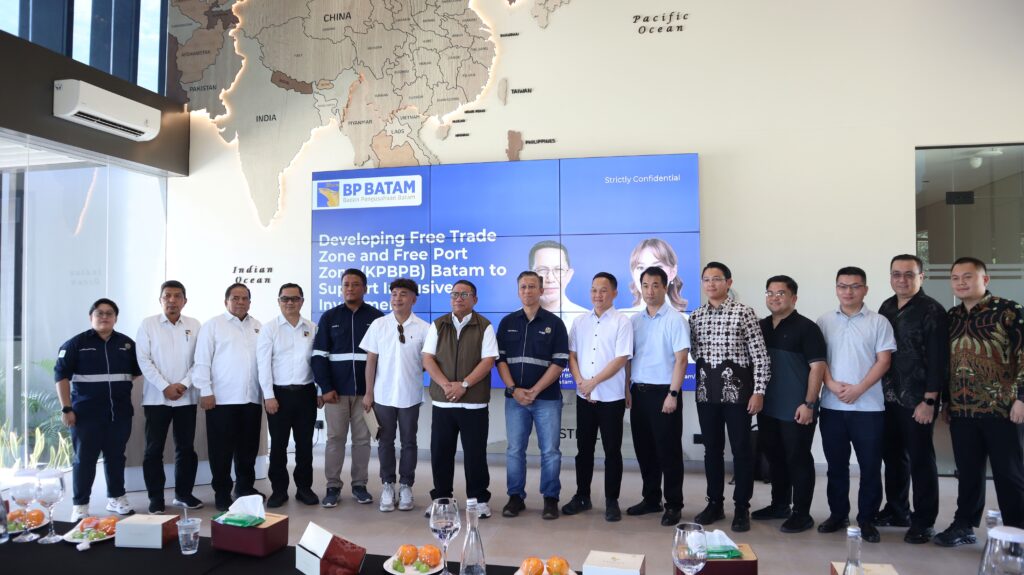
Chrispin Andereas, Head of Business Development at Tunas Industrial, praised BP Batam’s prompt response. “We greatly appreciate BP Batam’s more proactive working style. Several investment challenges we and our tenants faced were resolved quickly, and other concerns have been noted for immediate follow-up,” he said.
BP Batam also shared its strategy to develop priority infrastructure projects across Batam, introducing two key innovations: the Investment Envoy program and the Business Complaint Digital Dashboard. These initiatives are designed to improve transparency and ensure efficient, measurable, and responsive resolution of investment challenges. This aligns with President Prabowo’s directive to achieve economic growth in Batam at least 2% above the national average annually.
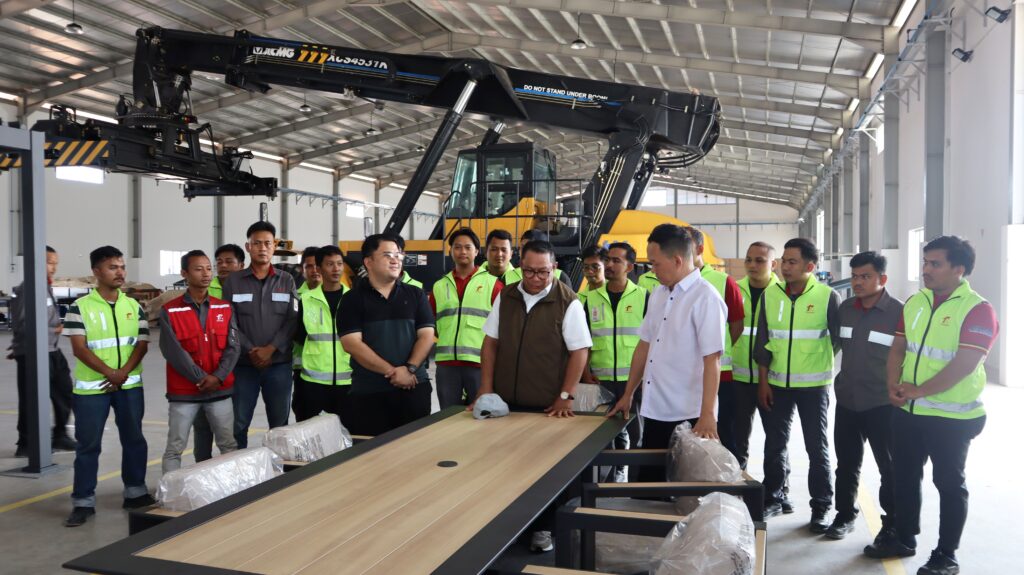
Collaboration between BP Batam and industrial estate operators is essential to foster a healthy investment climate, support Batam’s economic growth, and ensure ease of doing business for both local and international investors.
With robust infrastructure and business services, Tunas Industrial remains a leading hub for investment growth in Batam. Its three ongoing industrial park projects—Tunas Batam Center (64 hectares), Tunas Kabil (30 hectares), and Tunas Prima (100 hectares)—are being developed with a focus on green sustainability since 2023.
As a strategic partner of the Batam government, Tunas Industrial is committed to supporting the investment climate by developing modern, integrated, environmentally friendly, and sustainable industrial estates.

26 May
Skilled Indonesian Labor for International Expansion
Batam, May 26, 2025 – In the global race for business growth and expansion, Indonesia is emerging as a key player—not just because of its market size, but also because of the strength and promise of its workforce. With a strategic location in Southeast Asia, a booming population, and a growing pool of skilled professionals, Indonesia offers companies an unbeatable combination of market potential and talent.
A Massive Market Ready to Grow with You
Indonesia is the world’s fourth most populous country, with over 277 million people—and that number continues to grow (United Nations ESCAP, 2025). For any business eyeing expansion, that means one thing: opportunity. A population of this size provides a vast and diverse consumer base ready to engage with new products, technologies, and services.
Even more compelling is Indonesia’s expanding middle class. As incomes rise and urbanization accelerates, consumer behavior is shifting rapidly—toward more premium goods, digital services, and modern lifestyles. Businesses entering this market can tap into a segment with increasing purchasing power and evolving preferences (PwC Indonesia, 2023).
Skilled and Competitive Workforce
One of Indonesia’s greatest strengths lies in its people. The country boasts a young and dynamic population, with more than 60% under the age of 40 (World Bank, 2024). This youthful demographic is not only tech-savvy but also adaptable—traits essential in today’s fast-changing global economy.
In recent years, Indonesia has seen a steady rise in skilled professionals across various sectors. From engineers and IT experts to entrepreneurs and digital marketers, the local workforce is becoming increasingly capable of meeting modern business demands. Government and private initiatives in education and vocational training have further boosted the pool of skilled labor available to companies (Ministry of Education, Culture, Research, and Technology, 2023).
Moreover, labor costs in Indonesia remain competitive compared to many Western countries and even some of its Asian neighbors (ASEAN Briefing, 2024). Businesses can tap into high-quality talent without incurring excessive overhead—an ideal scenario for long-term scalability.
Batam: A Local Example of National Progress
One shining example of this skilled labor momentum is Batam. As a designated Free Trade Zone and Special Economic Zone (SEZ), Batam has developed into one of Indonesia’s most business-friendly regions. It is home to over 1.4 million people (Badan Pusat Statistik [BPS] Kota Batam, 2024), with a productive-age workforce exceeding 750,000—a figure that continues to grow in step with the city’s economic ambitions.
Even more promising is Batam’s declining unemployment rate, which fell to 6.49% in 2023, down from 8.82% in 2021 (BPS Kota Batam, 2024). This trend reflects not only increasing job opportunities but also a workforce that is increasingly absorbed by industry, manufacturing, digital services, and logistics.
Batam is also rich in educational infrastructure. The city hosts a growing number of higher education institutions offering diverse and industry-aligned majors, including engineering, business, maritime logistics, information technology, and creative design (Lembaga Layanan Pendidikan Tinggi Wilayah X, 2023). This creates a steady pipeline of job-ready graduates who meet the evolving needs of employers across sectors.
The Strategic Advantage for Investors
Whether you’re a manufacturing giant looking for cost-efficient production or a tech startup seeking agile digital talent, Indonesia’s labor force offers a solid foundation for sustainable growth. Companies that invest now are not only securing access to a skilled and youthful workforce, but they’re also positioning themselves at the heart of one of the fastest-growing economies in the world.
Indonesia isn’t just a place to outsource tasks—it’s a place to build, scale, and innovate.
The future of your business expansion starts with people—and Indonesia’s people are ready.
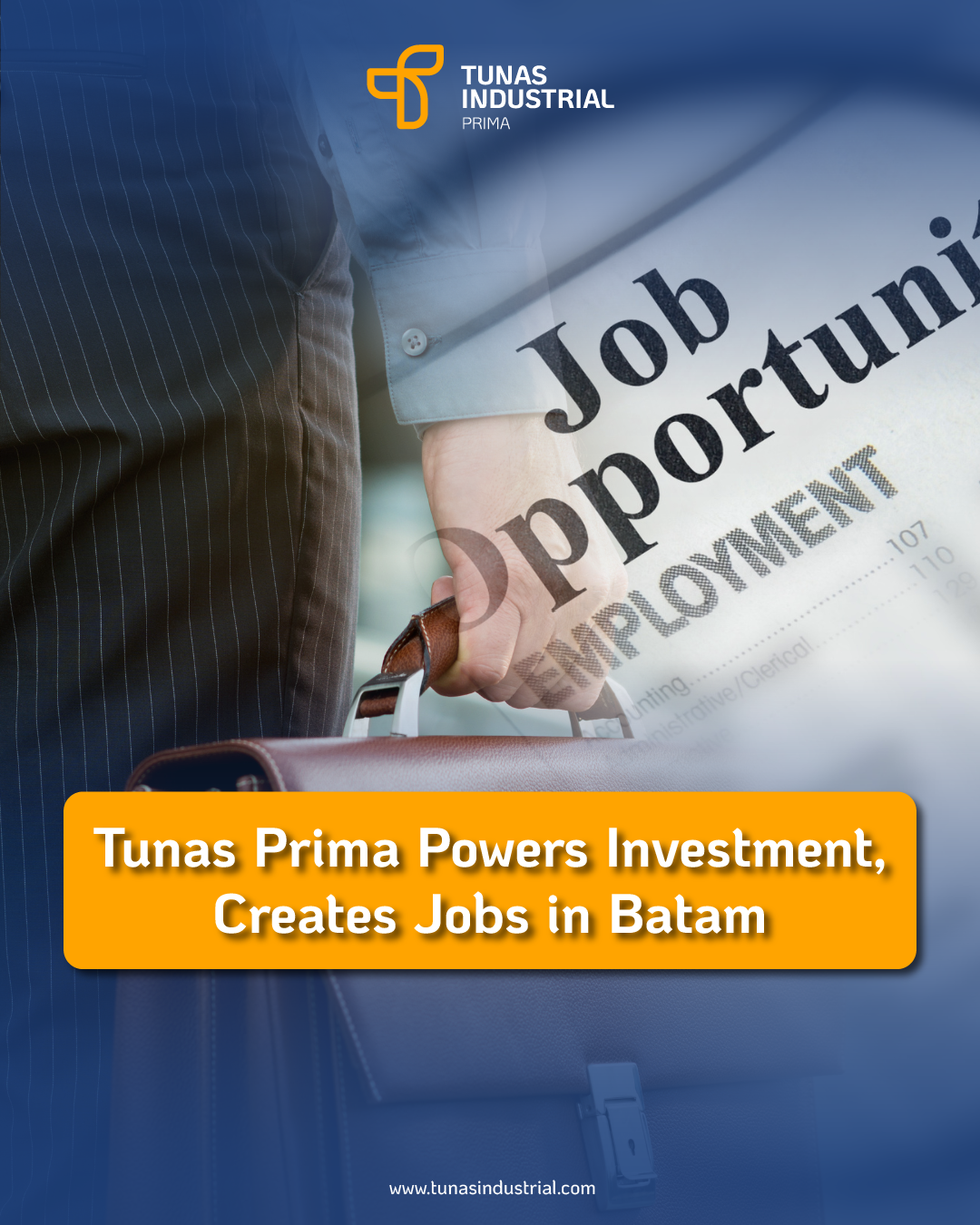
23 Apr
Tunas Prima Sparks Growth and Opportunity in Batam
Batam, April 23, 2025 – As global industries seek stable, strategic, and growth-ready locations, Batam is stepping into the spotlight. Foreign investments are pouring into the region, with Tunas Prima Industrial Estate emerging as a catalyst for change—creating jobs and powering the local economy.
A Surge of Foreign Investment
Despite widespread economic challenges and slowdowns in many parts of the world, Batam has proven itself to be resilient and attractive to international investors. Four major foreign companies have already confirmed their plans to begin operations within Tunas Prima Industrial Estate by 2025. With construction and operational preparations underway, these developments signify a major boost in confidence toward Batam’s investment climate.
These investments do more than just bring capital—they send a strong signal that Batam is evolving into a key industrial destination in Indonesia’s economic landscape. The presence of foreign investors reinforces the island’s identity as a manufacturing hub while positioning it for even greater roles in global value chains.
Job Creation at Scale
Perhaps the most visible and impactful outcome of this influx is the creation of thousands of job opportunities. By 2025, Tunas Prima Industrial Estate is projected to provide employment for around 2,500 local workers, with that number expected to double to 5,000 by 2026. In a city where over 17,000 job seekers—from recent high school graduates to university alumni—are actively searching for employment, this surge in opportunity couldn’t come at a better time. Local authorities, Batam’s Department of Manpower (Dinas Tenaga Kerja), have expressed strong support and are working to ensure the recruitment process benefits local communities first.
Strengthening the Industrial Core
Tunas Prima is not just bringing jobs—it’s also attracting foreign investment in a strategically vital sector: electronics manufacturing. This aligns with global industry trends and supports Indonesia’s ambition to move up the value chain. The companies joining Tunas Prima bring with them not only financial resources, but also technological expertise, modern production systems, and international best practices.
This dynamic synergy strengthens Batam’s industrial base, making it more competitive and future-ready—especially in embracing Industry 4.0 and beyond. Local workers stand to benefit from knowledge transfer, improved skills, and better long-term career prospects.
At the heart of this economic movement is Tunas Prima Industrial Estate. Since its development began in 2023, the Estate has positioned itself as a high-potential, future-ready investment destination. By attracting leading manufacturers and ensuring robust infrastructure, it offers not just space—but opportunity.
Its presence is now vital to Batam’s growth trajectory, acting as a magnet for investors and a launchpad for a stronger, more inclusive economy. As investment flows in and factories gear up for production, the impact on Batam will be felt far and wide. Thousands of job opportunities, enhanced industrial capabilities, and a rejuvenated economy are only the beginning.

21 Apr
One Stop Business Solution for Industrial Expansion in Batam
Indonesia is rapidly becoming Southeast Asia’s industrial powerhouse, and Batam stands at the forefront of this transformation. Strategically located within the Indonesia–Singapore–Malaysia Growth Triangle, Batam offers excellent infrastructure, competitive labor costs, and a thriving manufacturing ecosystem. But tapping into its full potential requires more than ambition—it demands local expertise, integrated solutions, and a partner who understands the landscape inside out.
That’s where Tunas Prima steps in.
Your Strategic Partner for Seamless Market Entry
Expanding your operations to Batam can be a game-changer—if done right. With Tunas Prima, you’re backed by a team of seasoned professionals offering end-to-end business support. From regulatory setup to infrastructure development, we ensure every step of your investment is efficient, compliant, and future-ready.
Comprehensive Business Solutions Tailored to Investors
We go beyond consulting—we offer hands-on execution and strategic insights to turn your plans into results.
- Market Entry Strategy: Understand Batam’s industrial terrain with localized, data-driven strategies.
- Supply Chain Optimization: Streamline costs and increase efficiency through smart logistics planning.
- Manufacturing Facility Selection: Choose the best industrial location aligned with your growth objectives.
- Operational Coaching: Empower your local teams with global-standard operational best practices.
Corporate Governance & Compliance You Can Trust
Doing business in a new country comes with legal complexity. We help you build a solid foundation to grow securely and sustainably.
- Company Formation & Structuring: Establish your entity with a robust legal framework and clarity.
- Regulatory Compliance & Governance: Stay aligned with dynamic Indonesian business laws and minimize risk.
- Accounting, Tax & Audit: Ensure financial transparency, efficiency, and audit readiness.
- HR & Payroll Services: Manage your workforce with precision and compliance.
Industrial Infrastructure & Facility Development
Whether you’re building a manufacturing plant or logistics hub, Tunas Prima transforms your ideas into world-class facilities.
- Master Planning & Design: Maximize productivity with intelligent, scalable layouts.
- Engineering & Structural Planning: Ensure facility resilience and long-term performance.
- Construction & Project Management: Deliver your project on time, within scope, and on budget.
Logistics, Shipping & Trade Facilitation
As Batam continues to rise as a trade hub, efficient logistics becomes your edge. We make cross-border trade smooth, reliable, and fast.
- Freight & Cargo Handling – Secure and cost-efficient transport solutions.
- Customs Brokerage & Compliance – Hassle-free import/export processing.
- Warehousing & Distribution – Optimize inventory storage and management.
- Port & Shipping Services – Reliable support for maritime operations.
Why Choose Tunas Prima?
Tunas Prima isn’t just a service provider—we are your strategic partner in long-term growth. With decades of local insight, extensive networks, and a commitment to execution, we help you scale with confidence.
- One-Stop Business Solution – From setup to execution, we handle it all.
- Industry Expertise – Deep knowledge of Batam’s business and regulatory landscape.
- Tailored Strategies – Customized solutions to fit your specific business needs.
Ready to take the next step? Let’s discuss how Tunas Prima can support your expansion in Batam!
📩 Contact us today to explore your opportunities.
Collaboration between BCA and Tunas Industrial at Customer Gathering 2024
Batam, November 15th 2024 – BCA and Tunas Industrial hosted a customer gathering event at Oakwood Hotel & Apartments Grand Batam. This event served as a platform for investors to gain insights into developments in the industrial and warehousing sectors, particularly in the Tunas Industrial Area developed by the Tunas Group.
During the event, Chrispin Andereas, Head of Business Development at Tunas Group, presented updates on their latest project, the Tunas Prima Industrial Estate. Currently, units under construction include Block B1 No. 1, Block A1 No. 11 & 12, and Block C No. 12, 15, 16, and 17, with a targeted completion by early 2025.
Additionally, Tunas Industrial has established an official partnership with BCA to facilitate customer investments through the Kredit Tempat Usaha (KTU) financing scheme. This program supports the purchase of warehouses, lots, and other business properties, offering practical solutions for entrepreneurs with convenient payment options.
This collaboration represents a strategic step to help investors find ideal business locations for production or storage, supported by easy financing schemes to operate and grow their businesses effectively.
Contact us for more info:
Muhammad Andika
Marketing Communication – Tunas Group
Phone Number: 0819-3365-4898
Email: [email protected]
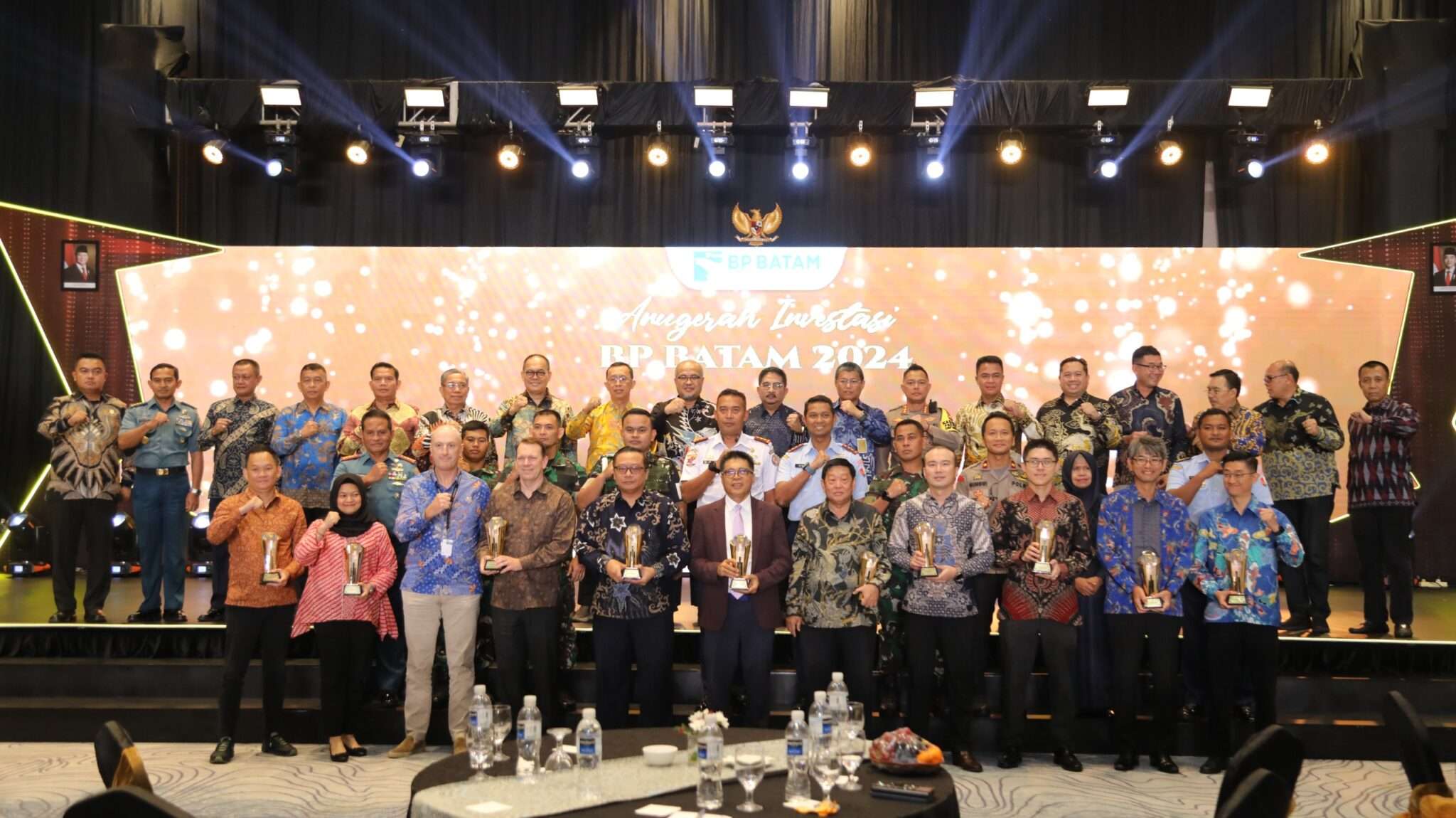
25 Oct
Tunas Prima Got Awarded at Anugerah Investasi BP Batam 2024
Batam, October 24, 2024 – Tunas Prima Industrial Estate, a part of the Tunas Industrial Estate, was honored with the prestigious “Kawasan Industri Terbaru (Newest Industrial Estate)” award at Anugerah Investasi BP Batam 2024. The event took place on Tuesday, October 22, 2024, at Radisson Golf and Convention Center in Batam. The award was received by Albert, Director of PT Prima Propertindo Utama, in recognition of Tunas Prima’s significant contribution to industrial growth and investment in Batam.
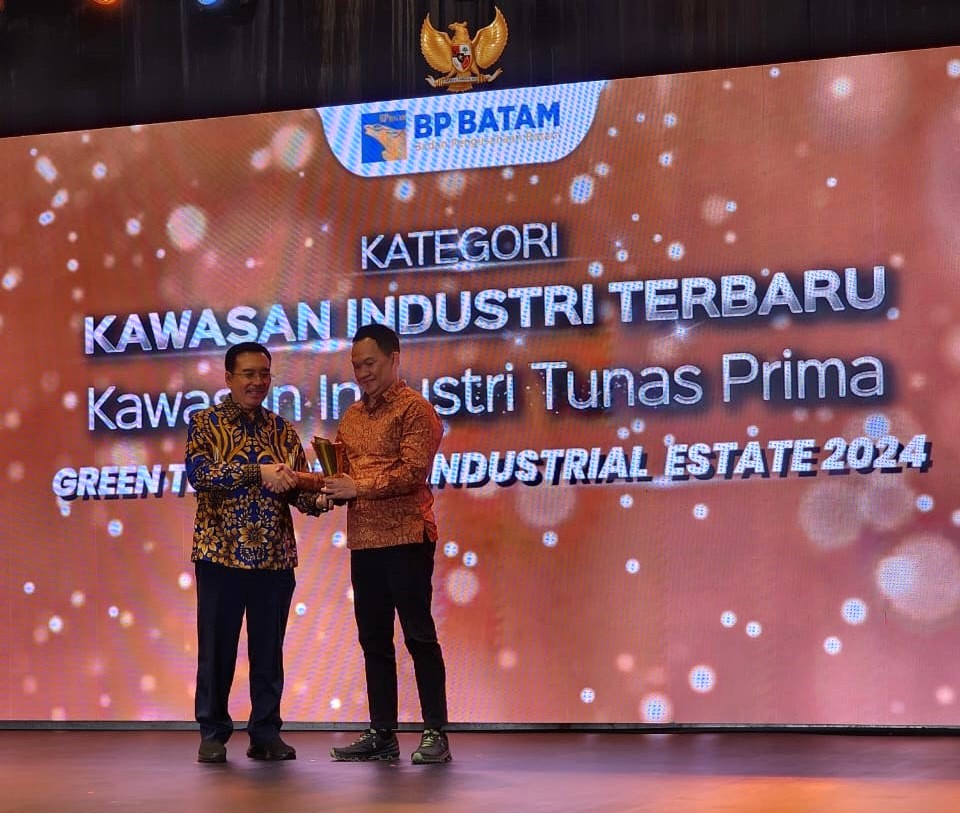
In his remarks, Susiwijono Moegiarso, Secretary of the Coordinating Ministry for Economic Affairs, highlighted the vital role of investment in developing international-standard industrial zones and positioning Batam as a modern manufacturing hub in Southeast Asia. In the first half of 2024, Batam recorded an investment increase of IDR 12.31 trillion, growing 55.70% compared to the same period the previous year. This growth was further supported by export values reaching USD 14.6 billion and imports totaling USD 13.8 billion in 2023. These achievements reinforce Batam’s standing as one of Indonesia’s premier investment destinations.
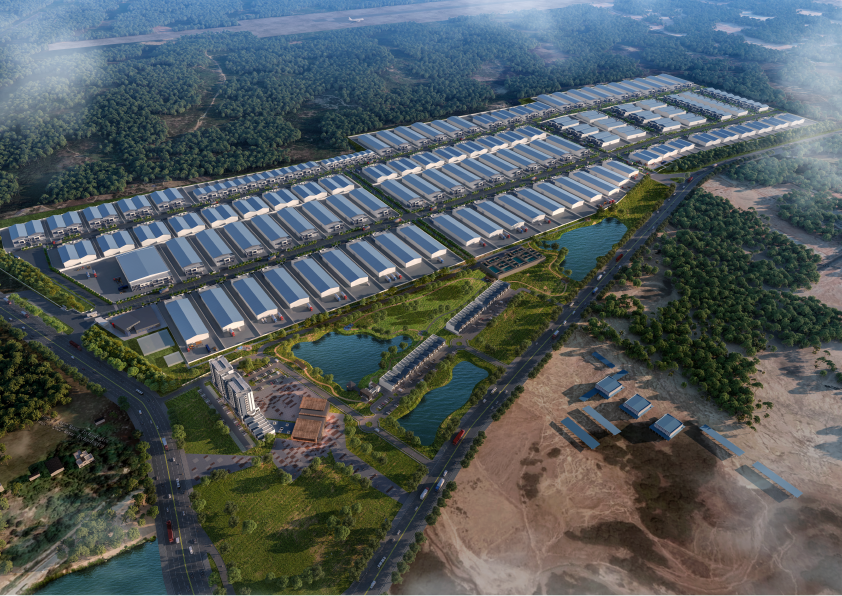
“We are deeply honored to receive this award and proud to be part of Batam’s progressive economic development. We will continue to innovate and offer the best services as a preferred industrial estate for both national and international investors in Batam,” said Albert, Director of Tunas Prima.
Tunas Prima is the latest 100-hectare industrial zone under the Tunas Industrial Estate, offering modern facilities and eco-friendly infrastructure that is GREENMARK certified by the Building and Construction Authority (BCA) Singapore. It is also in the process of GREENSHIP certification from the Green Building Council Indonesia (GBCI). Strategically located in Kabil, Batam, Tunas Prima provides seamless connectivity for various industries, including manufacturing, logistics, and technology, along with one-stop business services to support integrated business expansion. For further information about Tunas Prima, please contact:
Muhammad Andika (Marketing Communication Tunas Group)
Phone Number: 0819-3365-4898
Email: [email protected]
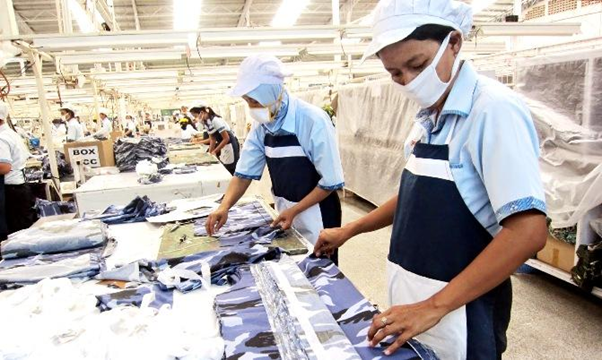
22 Oct
Batam’s Labor Landscape: Unlocking Opportunities
Batam, strategically located near Singapore and Malaysia, is rapidly establishing itself as one of Indonesia’s foremost industrial and investment hubs. For businesses and investors aiming to penetrate Southeast Asian markets, a thorough understanding of Batam’s labor market, competitive wage structures, and regulatory environment is essential. This article explores the key elements that make Batam a compelling destination for business expansion.
A Dynamic Workforce Demographic
Batam’s workforce is youthful, skilled, and growing rapidly, with a labor force participation rate of 70%. Many workers are under 35, bringing energy and adaptability to industries like manufacturing and technology. The city’s industrial growth has developed a labor pool experienced in maintaining global standards, particularly in electronics, shipbuilding, and automotive sectors. This makes Batam an attractive hub for businesses looking to tap into Southeast Asia’s markets.
In addition to local talent, Batam attracts foreign professionals, particularly from Singapore, China, and Europe. These foreign workers bring specialized skills, contributing to high-tech and strategic industries. Their presence complements local talent, filling critical roles and enhancing Batam’s competitive edge in industries such as manufacturing and technology.
Key Industries Driving Employment
Manufacturing is the primary driver of Batam’s economy, employing the largest portion of the workforce. The electronics industry, in particular, has seen significant growth due to the city’s focus on technology-driven production. Other key sectors, like automotive and consumer goods manufacturing, also contribute to job creation and skill development for the local population.
While manufacturing remains dominant, Batam’s economy is diversifying into services, trade, and tourism. The growing hospitality and tourism sectors, fueled by visitors from neighboring countries, are creating new employment opportunities and expanding the city’s economic potential beyond its industrial roots. This diversification opens up new avenues for investors and businesses seeking to tap into Batam’s evolving landscape.
Competitive Wage Structure
One of the key advantages of operating in Batam is its competitive labor cost. In 2024, the minimum wage in Batam was set at Rp 4,685,050 per month for a 40-hour workweek. This wage level strikes a balance between ensuring worker welfare and maintaining business competitiveness, allowing companies to access a productive labor force without the high operational costs often associated with major cities like Jakarta or Surabaya.
The minimum wage policy in Batam is shaped by various economic factors, including inflation, economic growth, and the cost of living. In 2024, the determination of the minimum wage has garnered attention as the government collaborates with labor unions to establish a fair wage that supports both employee welfare and the economic viability of businesses. This cooperative approach aims to foster a stable labor market while encouraging investment in the region.
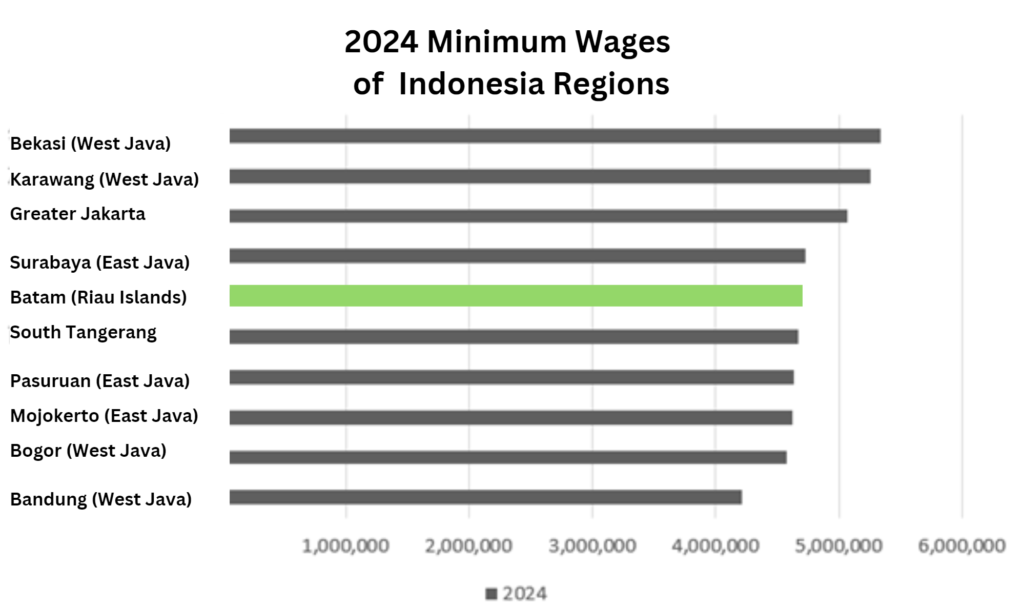
When compared to other regions in Indonesia, Batam’s minimum wage positions it in the middle tier. For example, while DKI Jakarta’s minimum wage is higher at Rp 5,067,381 per month, regions like Bekasi City and Karawang lead the country with minimum wages reaching Rp 5,343,430. This ranking illustrates that while Batam offers competitive wages, it remains manageable for businesses, ensuring that the region continues to attract investment.
Workforce Regulations and Labor Protections
Indonesia’s labor laws are designed to protect workers while facilitating efficient business operations. Overtime work is regulated with specific calculations to ensure fair compensation, where overtime wages are based on an employee’s base salary divided by 173 hours for a standard work month. This clarity helps maintain worker satisfaction and productivity, providing stability for businesses.
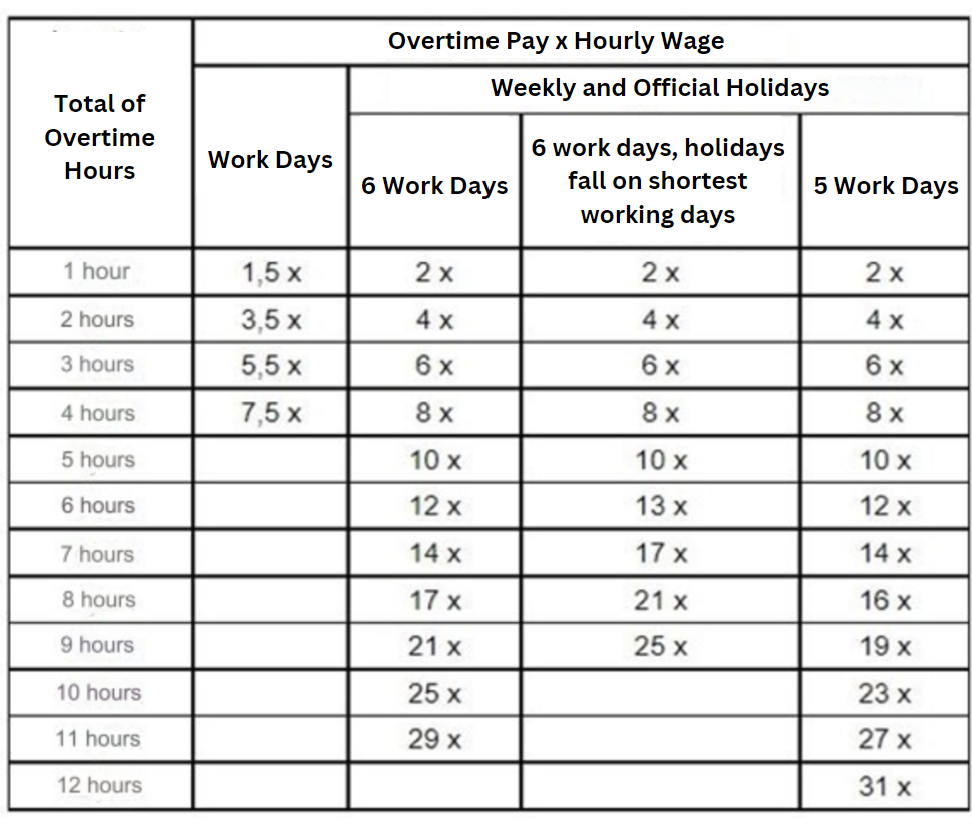
In Batam, industries like electronics manufacturing and logistics often operate on a three-shift system to maximize productivity, typically consisting of three 8-hour shifts for 24/7 operations. Some companies may also use a two-shift system with 12-hour shifts over a 6-day workweek. To support night shift workers, businesses often provide incentives like snacks and drinks to help maintain their energy levels.
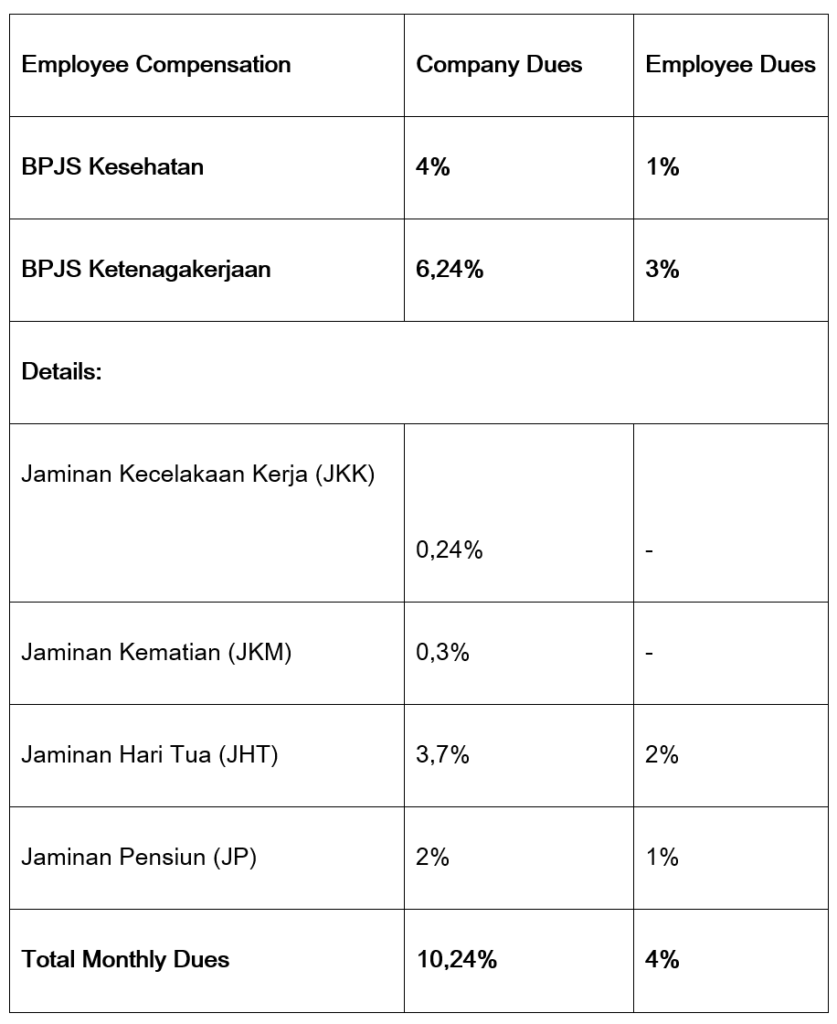
A crucial aspect of Batam’s labor environment is the comprehensive social security system managed by BPJS, which includes BPJS Kesehatan for health insurance and BPJS Ketenagakerjaan for employment protection. This system ensures workers have access to healthcare and support in case of workplace accidents, contributing to workforce stability.
Recruitment Trends and Talent Availability
Batam’s labor market is dynamic, with diverse recruitment channels for both blue-collar and white-collar job roles. For blue-collar positions, companies primarily utilize local job portals, social media, and HR outreach to attract skilled workers, reflecting the high demand in sectors like manufacturing, construction, and assembly. In contrast, white-collar recruitment, especially for managerial roles, often involves professional platforms like LinkedIn and headhunters, ensuring access to top-tier talent. For critical positions, companies may even recruit expatriates from their head offices to bring in specialized expertise.
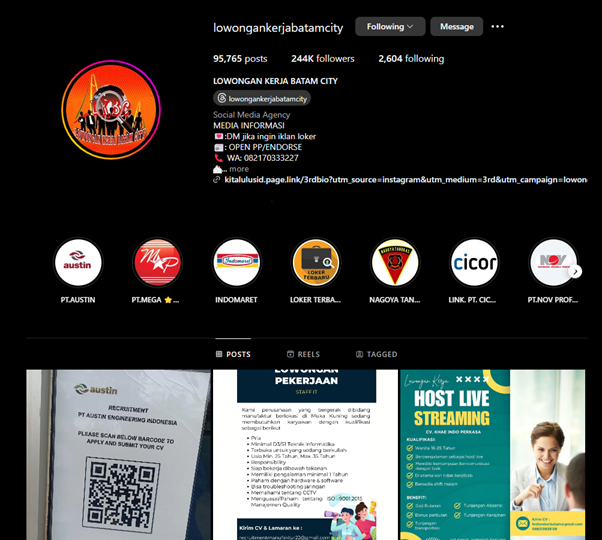
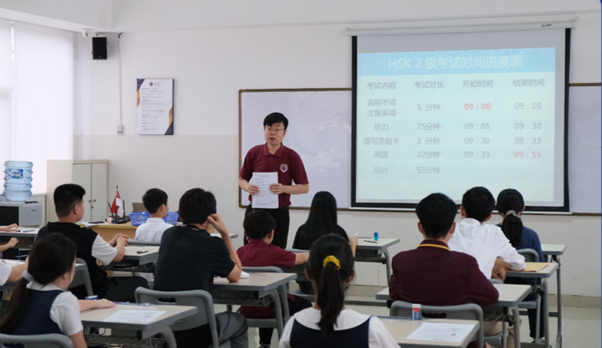
A unique aspect of Batam’s workforce is its multilingual capabilities, particularly in Mandarin. Many locals possess basic Mandarin skills, which is advantageous for businesses engaged in trade with Mandarin-speaking markets, such as China. The presence of a sizable Chinese community and Mandarin language programs in schools enhance this linguistic skill among the population. This capability not only fosters smooth international business relationships but also positions Batam as a multicultural city ready to connect local workers with the global job market.
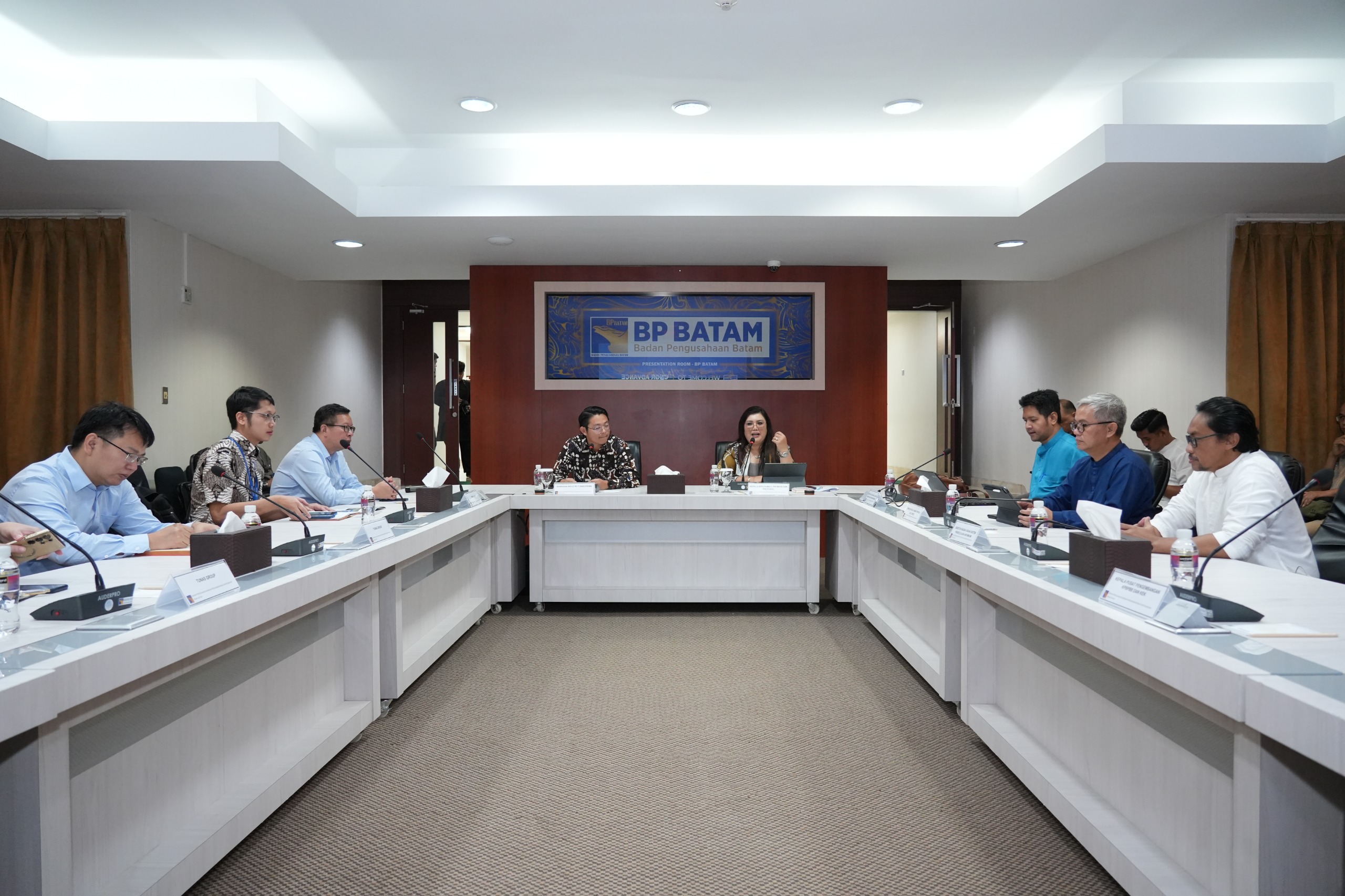
02 Oct
Downstream Industry Potential in Batam Attracts CNGR’s Interest in Investing
Batam continues to solidify its reputation as a prime investment destination with a recent visit from CNGR Advanced Material Co., Ltd., a leading Chinese company in the energy sector and a global supplier of lithium batteries. The visit on Friday, September 27, 2024, highlights the growing interest of international companies in Batam, particularly in the tin downstream industry.
As one of the world’s largest producers of tin, Indonesia holds significant potential to enhance its economic value through downstream processing. Tin-based products, such as electronic components, batteries, and other industrial materials, offer much higher export value. Batam, with its well-established and integrated industrial infrastructure, is perfectly positioned to become a key hub for such downstream industries. The city’s status as a Free Trade Zone (FTZ) also provides numerous incentives for companies looking to expand their operations in Indonesia. Its robust infrastructure, ease of import-export processes, and strategic location make Batam an ideal choice for multinational companies like CNGR.
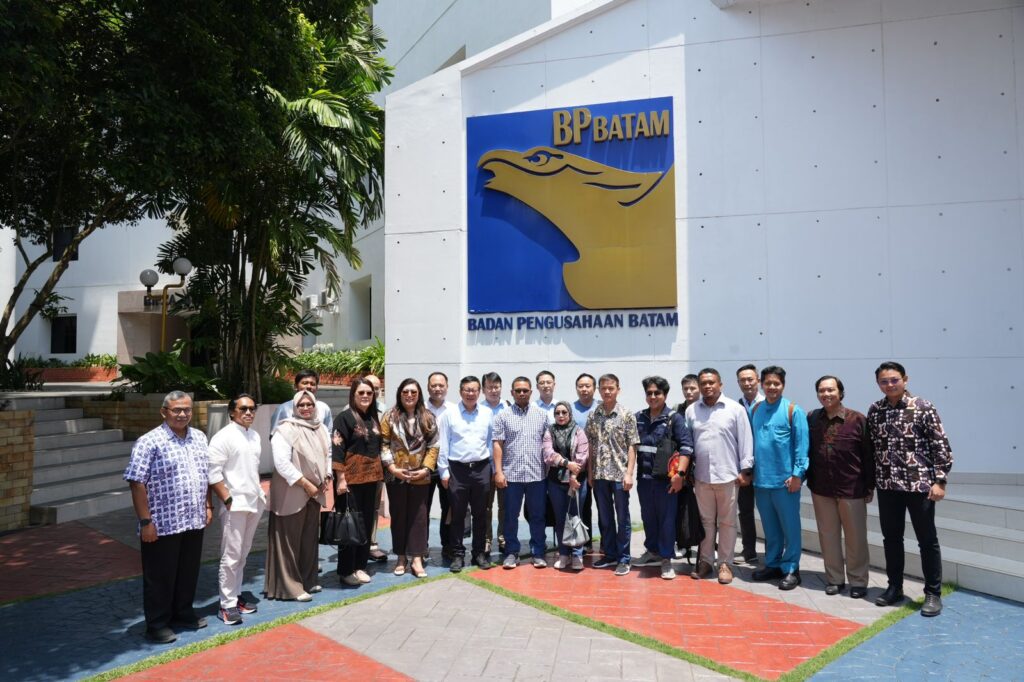
CNGR Advanced Material has successfully expanded into markets across Europe, the United States, Japan, and South Korea. Following this success, CNGR is now considering Batam as its next strategic move. According to Zhu Jiangang, Vice President of CNGR Advanced Material, the company’s investment in Indonesia has already reached USD 7 billion and employed 8,000 workers. They are optimistic that this expansion will continue, with Batam’s downstream industry offering strong potential as the next investment destination.
During the meeting, Zhu Jiangang expressed his confidence in Batam’s promising market potential, noting the one-stop business solutions provided by Tunas Industrial Estate, led by Chrispin Andereas, which enhances the prospects for business growth. Zhu emphasized that Batam’s strategic location, streamlined import-export processes, and solid infrastructure were key factors driving CNGR’s interest in investing in the city. This aligns with CNGR’s ambition to continue its growth in the energy and downstream sectors, with plans to expand operations in countries such as Finland, Morocco, and Indonesia. Batam’s readiness to accommodate large-scale investments underscores its position as a leading industrial hub in Southeast Asia.
